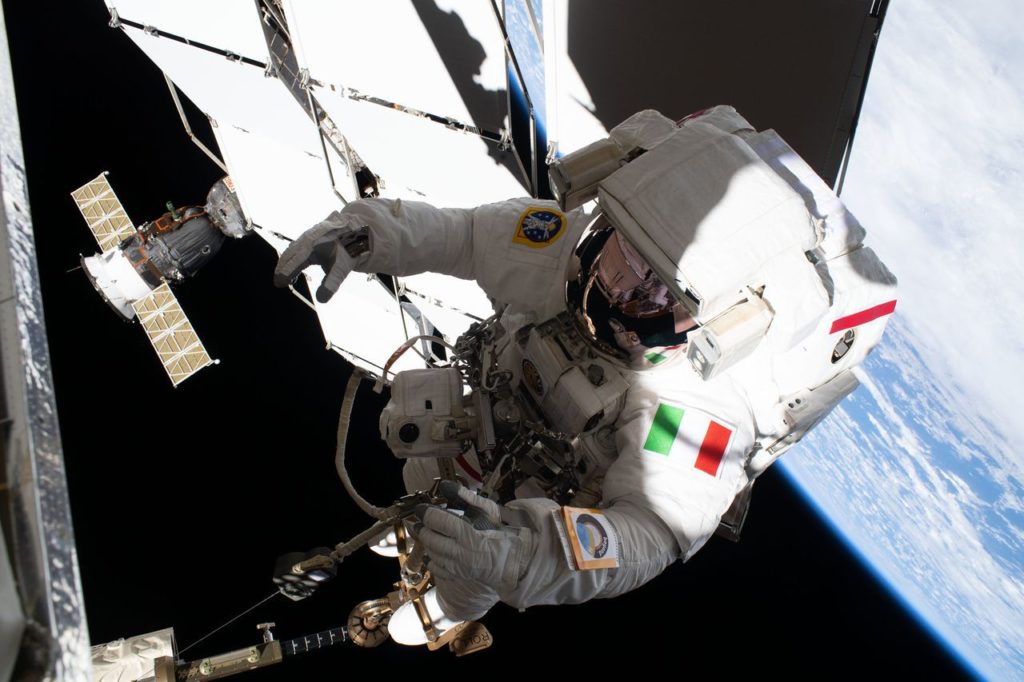For the first time in 11 years, the European Space Agency (ESA) is looking for new astronauts, and is particularly calling on women to apply.
The space agency's applications will open on Wednesday 31 March and close on Friday 28 May 2021.
ESA is looking to hire four to six so-called "career astronauts," who will be hired permanently, and also wants to make a reserve list of another 20 astronauts for shorter contracts, depending on the commercial partnerships and projects that ESA enters into.
ESA is specifically calling on women to apply, but stressed that there is no set quota for the number of female astronauts to be hired.
"We select purely on the basis of competence. But if no women apply, it is, of course, difficult to select them," Angelique Van Ombergen, science coordinator at ESA, said during a press conference on Tuesday.
"That is why we encourage women a little extra," she said. "From the previous selection of astronauts, only one woman was selected."
ESA Director General Jan Wörner also stressed that applications from all qualified candidates are welcome, irrespective of gender, sexual orientation, ethnicity, beliefs, age, or other characteristics.
The new batch of astronauts will mainly fly to the International Space Station (ISS), but ESA also has concrete plans to go to the moon again, and to put the first European man and woman on the moon "relatively soon."
Alongside its call for new astronauts, ESA is also launching a separate call for its "parastronaut project," aiming to allow an astronaut with disabilities to work in space.
People applying for this project have to meet the same educational and psychological requirements as the other candidates, but people with a pronounced leg length difference, a short stature (<130 cm), or a lower limb deficiency (a single or doubt foot deficiency through the ankle, or below the knee) can also apply.
How to apply
On the agency's website, candidates have to upload their CV, motivation letter, a copy of their identity card and a medical certificate, and fill out a questionnaire. Candidates have to be a citizen of an ESA Member, or an Associate Member State.
ESA requires a master's degree (or higher) in natural sciences, medicine, engineering, mathematics or computer sciences, and three years of work experience.
"A doctorate or second master's degree in the same fields will give you bonus points, as will an education as a test pilot, but it is not necessary," ESA said.
Candidates have to be fluent in English and at least one other language. Which language that is, does not matter, according to the agency.
Equally important is the ability to function under particularly high pressure, to communicate well in an intercultural and multidisciplinary team, and to be able to travel for long periods.
ESA also expects astronauts to give feedback to the public and communicate about their lives as an astronaut, stressed Belgian astronaut Frank De Winne, who is the head of ESA's astronaut centre.
"You are a role model. It is important to involve the young generation in technology and space travel," he added.
In total, the whole selection procedure will take about 18 months. The announcement of the new astronauts is expected in October 2022.
Maïthé Chini
The Brussels Times

